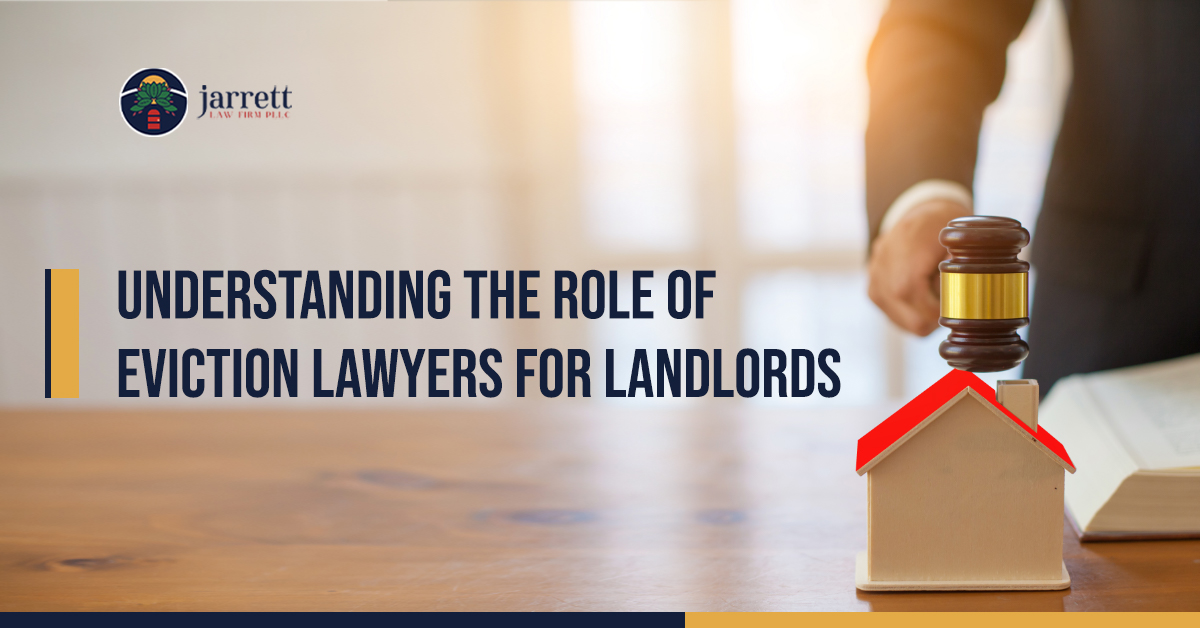Top Tips for Discovering the Right Eviction Attorney Miami for Your Case
Top Tips for Discovering the Right Eviction Attorney Miami for Your Case
Blog Article
Understanding the Duty of an Eviction Legal Representative in Residential Property Administration Issues
The function of an eviction lawyer is usually taken too lightly in the realm of building monitoring, yet their know-how can be pivotal in solving renter conflicts properly. These lawful specialists navigate the intricate landscape of eviction laws, guaranteeing that proprietors remain certified with policies while protecting their interests.
Importance of Eviction Lawyers

In addition, expulsion legal representatives provide necessary assistance in preparing and filing the necessary lawful documents, such as notifications to leave and court filings. Their knowledge can considerably improve the eviction process, permitting residential property supervisors to focus on other functional aspects of their obligations. Furthermore, they can stand for home managers in court, presenting a strong situation to promote the residential or commercial property proprietor's interests and legal rights.
In instances of disputes, having legal representation can be essential in working out negotiations or moderating problems, possibly saving time and sources. Ultimately, engaging an eviction lawyer not only help in the effective management of home yet likewise functions as a guard versus possible legal effects, making certain that residential or commercial property monitoring methods continue to be both efficient and authorized.
Key Obligations of Expulsion Attorney
Expulsion lawyers play an important duty in the residential or commercial property monitoring process by looking after different legal obligations related to occupant expulsions. One of their primary duties is to give legal recommendations to residential or commercial property managers and property owners, guaranteeing conformity with state and neighborhood laws pertaining to occupant rights and expulsions. This includes assessing lease contracts to recognize prospective offenses and grounds for eviction.
Furthermore, expulsion attorneys prepare and submit the necessary legal records to initiate expulsion process. They draft eviction motions, problems, and notifications, ensuring that all paperwork satisfies lawful criteria. They represent property owners in court throughout expulsion hearings, providing proof and arguments to support their case.
Eviction legal representatives additionally play a crucial duty in negotiating settlements between renters and property managers, often looking for to resolve disputes agreeably before they escalate to court. Past expulsions, they might help in issues associated to tenant damages, overdue lease, or lease infractions. In general, eviction lawyers offer vital lawful support that helps building supervisors navigate the intricacies of renter evictions while minimizing possible lawful dangers and ensuring an extra reliable residential property administration process.
Lawful Structure Governing Evictions
The lawful structure regulating evictions is a complicated interaction of government, state, and regional laws designed to secure both renters and landlords. At the government degree, the Fair Housing Act forbids prejudiced practices in real estate, impacting expulsion procedures and ensuring equivalent treatment for all occupants. In addition, the Servicemembers Civil Alleviation Act offers sites defenses for army employees against expulsion while on active obligation.
State legislations further define the eviction process, including the factors for eviction, notification requirements, and the timeline for procedures. Most states need landlords to supply written notification defining the reason for eviction, such as non-payment of rental fee or lease offenses. This notice period varies significantly, with some states enabling just three days and others as much as thirty days.
Local regulations might present added policies, such as lease control procedures or certain lessee protections, which property managers have to comply with. These laws collectively create an organized procedure that intends to stabilize the civil liberties of home proprietors with occupant securities. Understanding this legal framework is important for expulsion attorneys, as it informs their strategies and guarantees compliance with the myriad of regulations regulating eviction cases.
Common Obstacles in Expulsion Instances
Navigating the intricacies of expulsion legislation provides several challenges for property managers and their lawyers. One considerable hurdle is guaranteeing compliance with state and regional guidelines, which can vary widely and transform often. Failure to stick to these laws find here can lead to delays or terminations of eviction proceedings, requiring landlords to reactivate the process.
An additional difficulty is the necessity of offering appropriate documentation to sustain the eviction. Landlords should keep accurate records of lease arrangements, payment histories, and any type of correspondence with occupants. Poor or poorly organized documents can threaten a property manager's case, making it important to have a extensive and organized method to record-keeping.

Eventually, these obstacles highlight the value of understanding the lawful landscape and preparing effectively to browse the eviction procedure successfully, making the role of an eviction legal representative crucial in these situations. - eviction attorney miami
Advantages of Working With an Eviction Legal Representative
Hiring an eviction lawyer can dramatically improve the usually complicated and demanding procedure of removing an occupant from a rental home. Among the key benefits is their proficiency in navigating the lawful landscape bordering evictions. They are skilled in local legislations and guidelines, ensuring that all procedures are complied with properly to avoid costly delays or prospective lawful challenges.
Additionally, eviction attorneys can manage all essential paperwork, from filing the initial expulsion notification to standing for proprietors in court. Their experience allows them to prepare a solid situation, boosting the likelihood of a beneficial result. This legal support not only saves time however likewise relieves the psychological burden often associated with expulsion proceedings.
Additionally, an eviction lawyer can offer useful suggestions on tenant-related concerns, aiding proprietors recognize their civil liberties and duties (eviction attorney miami). They can likewise mediate disputes, possibly causing a resolution without the demand for court intervention
Conclusion
In recap, browse around here eviction legal representatives play an important duty in home monitoring by making sure conformity with legal requirements and shielding landlords' legal rights. By preparing essential documentation, standing for residential or commercial property proprietors in court, and bargaining settlements, eviction legal representatives not only improve the expulsion process yet also minimize the dangers linked with potential legal difficulties.
A seasoned expulsion lawyer assists property managers understand regional and state legislations that govern occupant civil liberties and expulsion treatments, ensuring compliance and decreasing the threat of pricey lawful bad moves.
Expulsion legal representatives play an essential role in the home administration process by managing different legal obligations associated with renter expulsions. Overall, eviction legal representatives give necessary lawful support that helps residential property managers navigate the complexities of tenant expulsions while decreasing possible legal risks and guaranteeing a more efficient property monitoring procedure.

By preparing required documents, standing for residential or commercial property proprietors in court, and negotiating negotiations, eviction attorneys not just simplify the eviction process however likewise reduce the dangers linked with potential legal challenges.
Report this page